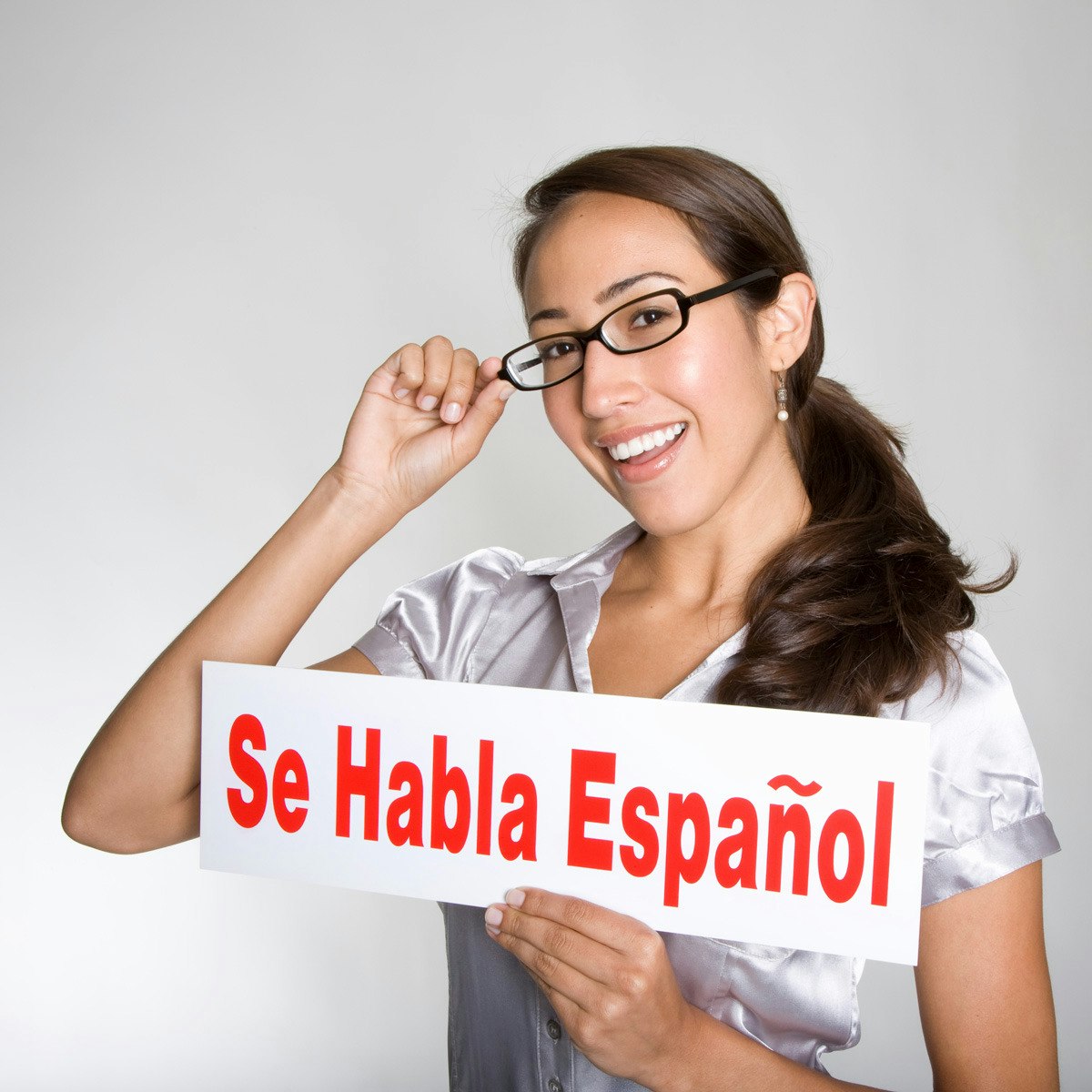
¡Hola! ¿Como Estas? In this entry level course, you will take the first step toward exploring the foundations of Spanish grammar and pronunciation, and will begin to build a working vocabulary of common Spanish words and expressions. You will be able to talk about yourself, your family and friends in the present tense, and begin to explore the cultural context of the Spanish-speaking world through a series of videos and interactive activities, including speaking, reading and writing exercises. The adventure begins here, so ¡vámanos!
What's inside
Syllabus
Module 1: Talking About Family and Friends
The first module introduces Spanish grammar and pronunciation and you will begin to build your Spanish vocabulary. By the end of the module, you’ll be able to talk about yourself and your family and will be able to count to 10 in Spanish. We’ll also discuss and practice the “ar” verbs and the useful verb tener. By the end of the module you will have started laying the foundations of your vocabulary.
Read more
Syllabus
Good to know
Save this course
Reviews summary
Fluent vocabulary: conversational skills
Activities
Brush up on basic grammar and pronunciation
Show steps
Recalling the basics of Spanish grammar and pronunciation will help you to quickly grasp the concepts taught in this course.
Browse courses on
Spanish Grammar
Show steps
-
Review your notes or textbooks from previous Spanish classes.
-
Take an online quiz or practice exercises to test your knowledge.
-
Listen to Spanish music or podcasts to get your ear tuned to the language.
Practice conjugating verbs
Show steps
Regular practice of verb conjugation is crucial to developing fluency in Spanish.
Show steps
-
Use an online verb conjugator or workbook to practice conjugating different verbs.
-
Create flashcards with verb conjugations and test yourself.
-
Write sentences or short stories using a variety of verb tenses.
Create a Spanish language journal
Show steps
Keeping a journal in Spanish will allow you to practice your writing skills and expand your vocabulary.
Browse courses on
Spanish Vocabulary
Show steps
-
Choose a topic that you're interested in and start writing about it in Spanish.
-
Use a dictionary or online translator to help you with unfamiliar words.
-
Write regularly, even if it's just a few sentences each day.
Two other activities
Expand to see all activities and additional details
Show all five activities
Join a Spanish conversation group
Show steps
Engaging in conversations with other Spanish learners will enhance your fluency and confidence in the language.
Show steps
-
Search for Spanish conversation groups in your area or online.
-
Attend the meetings regularly and actively participate in the discussions.
-
Take the opportunity to ask questions and get feedback on your pronunciation and grammar.
Read a Spanish novel or short story collection
Show steps
Reading Spanish literature will expose you to authentic language usage and help you improve your reading comprehension.
Browse courses on
Spanish Literature
Show steps
-
Choose a Spanish novel or short story collection that interests you.
-
Read the book slowly and carefully, paying attention to the vocabulary and grammar.
-
Look up unfamiliar words and phrases in a dictionary.
Brush up on basic grammar and pronunciation
Show steps
Recalling the basics of Spanish grammar and pronunciation will help you to quickly grasp the concepts taught in this course.
Browse courses on
Spanish Grammar
Show steps
- Review your notes or textbooks from previous Spanish classes.
- Take an online quiz or practice exercises to test your knowledge.
- Listen to Spanish music or podcasts to get your ear tuned to the language.
Practice conjugating verbs
Show steps
Regular practice of verb conjugation is crucial to developing fluency in Spanish.
Show steps
- Use an online verb conjugator or workbook to practice conjugating different verbs.
- Create flashcards with verb conjugations and test yourself.
- Write sentences or short stories using a variety of verb tenses.
Create a Spanish language journal
Show steps
Keeping a journal in Spanish will allow you to practice your writing skills and expand your vocabulary.
Browse courses on
Spanish Vocabulary
Show steps
- Choose a topic that you're interested in and start writing about it in Spanish.
- Use a dictionary or online translator to help you with unfamiliar words.
- Write regularly, even if it's just a few sentences each day.
Join a Spanish conversation group
Show steps
Engaging in conversations with other Spanish learners will enhance your fluency and confidence in the language.
Show steps
- Search for Spanish conversation groups in your area or online.
- Attend the meetings regularly and actively participate in the discussions.
- Take the opportunity to ask questions and get feedback on your pronunciation and grammar.
Read a Spanish novel or short story collection
Show steps
Reading Spanish literature will expose you to authentic language usage and help you improve your reading comprehension.
Browse courses on
Spanish Literature
Show steps
- Choose a Spanish novel or short story collection that interests you.
- Read the book slowly and carefully, paying attention to the vocabulary and grammar.
- Look up unfamiliar words and phrases in a dictionary.
Career center
Language Teacher
Interpreter
Translator
Foreign Language and Literature Teacher
Travel Agent
Cultural Anthropologist
Foreign Service Officer
Editor
Journalist
Librarian
Social Worker
Curator
Museum Educator
Nonprofit Administrator
Archivist
Reading list
Share
Similar courses
OpenCourser helps millions of learners each year. People visit us to learn workspace skills, ace their exams, and nurture their curiosity.
Our extensive catalog contains over 50,000 courses and twice as many books. Browse by search, by topic, or even by career interests. We'll match you to the right resources quickly.
Find this site helpful? Tell a friend about us.
We're supported by our community of learners. When you purchase or subscribe to courses and programs or purchase books, we may earn a commission from our partners.
Your purchases help us maintain our catalog and keep our servers humming without ads.
Thank you for supporting OpenCourser.



